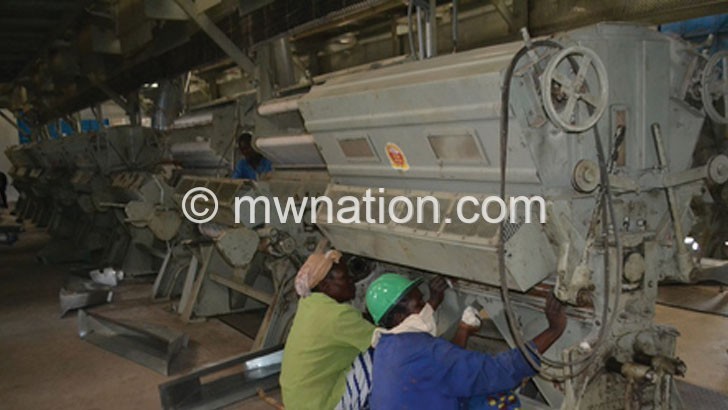Chamber outlines 2018 challenges
Malawi Confederation of Chambers of Commerce and Industry (MCCCI) has mentioned cost of finance and electricity as the top obstacles in doing business in 2018.
In its 2018 Malawi Business Climate Survey, which represents a snapshot in time and measures the views of businesses on the business and investment landscape in Malawi, MCCCI has pointed out that access to finance was the most problematic factor to businesses in the year ending today with a rating of 8.8 out of 10, followed by electricity at a rating of 8.4 out of 10.

MCCCI said in 2016 cost of finance topped obstacles to doing business and then moved eight steps downwards due to optimism from businesses with the downward trend of lending rates since November 2016 which continued in 2018, but was not significant enough to trigger increased private sector borrowing since the rate remains high.
Reads the report in part: “Malawi lacks a variety of financial instruments, especially long-term financial instruments which can help make available affordable capital for investment.
“Businesses are still expectant of better interest rates with the establishment of the Malawi Agricultural and Industrial Investment Corporation.”
Observing that Malawi as a developing country is among the top 20 poorest countries in the world, the chamber says starting or maintaining a business requires financial investment, but it is difficult for businesspersons to access these funds from reputable financial institutions due to the high cost of borrowing.
“For businesses, this means that a great part of their profits in the first few years of operation are directed to repaying loans instead of reinvesting into the business and by the time they finish repaying the loan, the business cannot survive on its own,” says the report.
Earlier, World Bank said in its May 2018 Malawi Economic Monitor that despite the Reserve Bank of Malawi (RBM) reducing the policy rate by a total of eight percentage points, credit growth remained subdued, with figures showing that despite the drop in nominal rates, real base lending rates remained elevated at more than 15 percent as of January, weighing on private sector lending.
However, despite all these challenges, business confidence improved by 2.5 percent in 2018 compared to 2017.
“The expected business performance and outlook are used to estimate business confidence in the economy. Business Confidence Index [BCI] helps to understand the overview of the state of the economy. BCI in 2018 is calculated at 69.5 percent against 67 percent recorded in 2017,” it reads.
The report has also cited telecommunication, uncertainty in economic and regulatory policies, crime, customs regulations, domestic tax and non-tax reforms, domestic tax regulations, procedures and bureaucracy, water supply, corruption, exchange rate policy and domestic technical regulations and standards and lack of information on product markets and technology as other problematic areas in doing business in 2018. n





